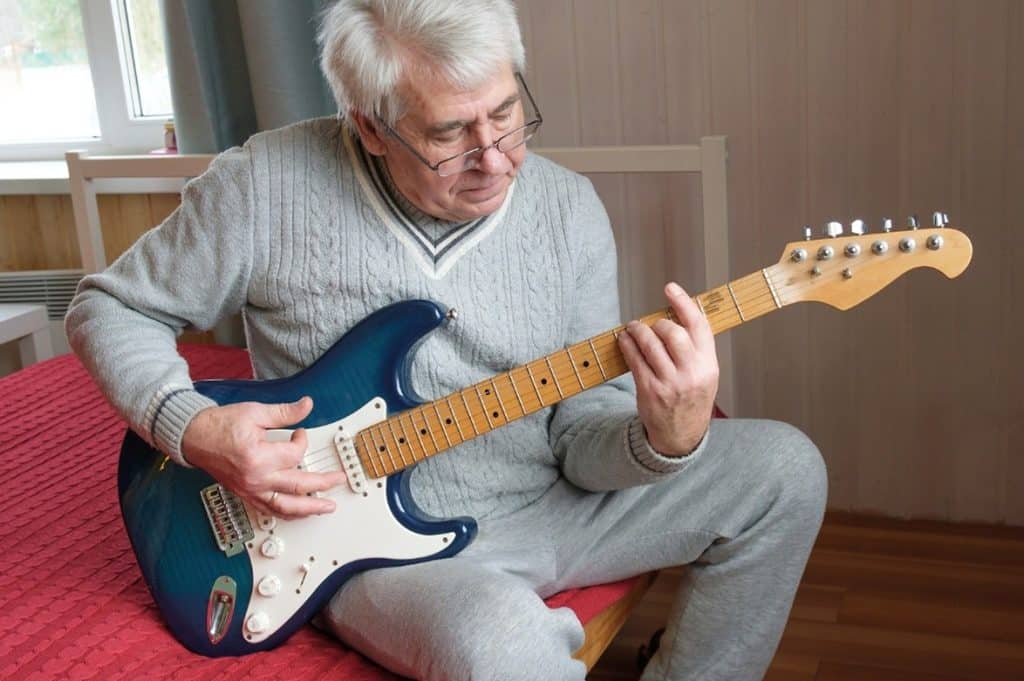As we begin to transition into the fall months and start to spend more time inside, I’d like to explore Dementia. As the Director of Behavioral Health here at Lyric Health
At some point in our lives, almost everyone will be touched by Alzheimer’s disease, either by knowing or caring for someone who has it or developing it as part of the aging and or illness process. According to the National Institute on Aging, nearly 6 million older adults in the U.S. have Alzheimer’s disease. The age of onset for those who have it is usually the mid 60’s. With Alzheimer’s disease, brain cell connections and the cells themselves degenerate and die because of the accumulation of harmful proteins in the brain known as amyloid plaques.

Memory loss and confusion are the main symptoms. In addition, dementia can also come from many other neurocognitive disorders. Vascular Dementia is similar to Alzheimer’s Dementia but is caused by damage to blood vessels in the brain from a history of strokes, heart conditions and overall poor health. According to the Mayo Clinic, Frontotemporal Dementia results in severe personality changes including socially inappropriate, impulsive, or emotionally indifferent behaviors, while others lose the ability to use language properly. Also, later-stage Parkinson’s can also result in dementia, among many other symptoms.
Though no cure yet exists, many dementia patients are often assisted through family support, adjunct medical, physical, and psychological therapies, management strategies such as the reorganization of their homes (to reduce falls, and remember the location of objects), memory aids and behavioral techniques. Though psychiatric medications are used to treat sleep issues, agitation, psychosis and depression, the medications most often prescribed, especially early in the disease process to slow down the dementia, include cholinesterase inhibitors, which boost levels of a chemical messenger involved in memory and judgment.
The Food and Drug Administration recently fully approved the Alzheimer’s drug, Leqembi, that amid its many cautions and potential side effects, removes beta-amyloid proteins from the brain, with the goal of reducing cognitive and functional decline in people living with early Alzheimer’s (NPR, July 6, 2023).
Music, however, remains both a holistic and enjoyable intervention for dementia, and for good reason. Many studies have shown that music can help dementia patients by engaging multiple parts of the brain, such as the hippocampus, which affects memory, the temporal lobes which influence mood, and the frontal lobe, which is responsible for thinking and executive function (Passion Jun, MD, BrainWorld, 2022).

A 2018 study by Hee Hyun Kim Cho at Temple University, suggests that music therapy with active group singing may be an effective non-pharmacological intervention in improving quality of life and the mood of dementia patients at long term care settings. In the Journal of Aging and Physical Activity (2022), it has been found that social ballroom dancing can improve cognitive functions and reduce brain atrophy in older adults who are at increased risk for Alzheimer’s disease and other forms of dementia.
But even if one does not have dementia or is at risk for it, active participation in music may help prevent or delay dementia. A 2023 study in the journal, Frontiers in Aging Science, found that in the elderly, 6 months of piano lessons, one hour per week, may stabilize white matter microstructure of the fornix which is a potential imaging biomarker for mild cognitive impairment and Alzheimer’s Disease.
But it is important to point out that even if there is no interest in practicing or engaging in playing an instrument, singing, or dancing, just passive listening to music may also have helpful benefits. For example, a 2016 study in the journal Neurology, found that people who listened to music for at least 30 minutes a day had a lower risk of developing dementia. For dementia patients specifically, listening to some of their favorite music can also help to evoke memories from better and healthier days. Triggering these positive memories can also help them focus, improve their mood, and reduce agitation (Brain, 2015, Journal, Aging and Mental Health, 2013).

One of my patients shared that when her father who has Vascular Dementia is having an episode of confusion and agitation, she streams some of his favorite jazz and swing artists, including Duke Ellington, Benny Goodman, and Tommy Dorsey. The change is instantaneous. He sits up, smiles, focuses, and becomes more coherent as he discusses his treasured memories of good times and the essential life he lived.
So, if you are caring for a dementia patient, or family member with dementia, you may want to consider incorporating music therapy into their care plan. Also, if you want to keep your mind in working order, music may be your key to maintaining your cognition, memory, and overall emotional stability. So, in the words of the maestro, Barry White, “let the music play!”

